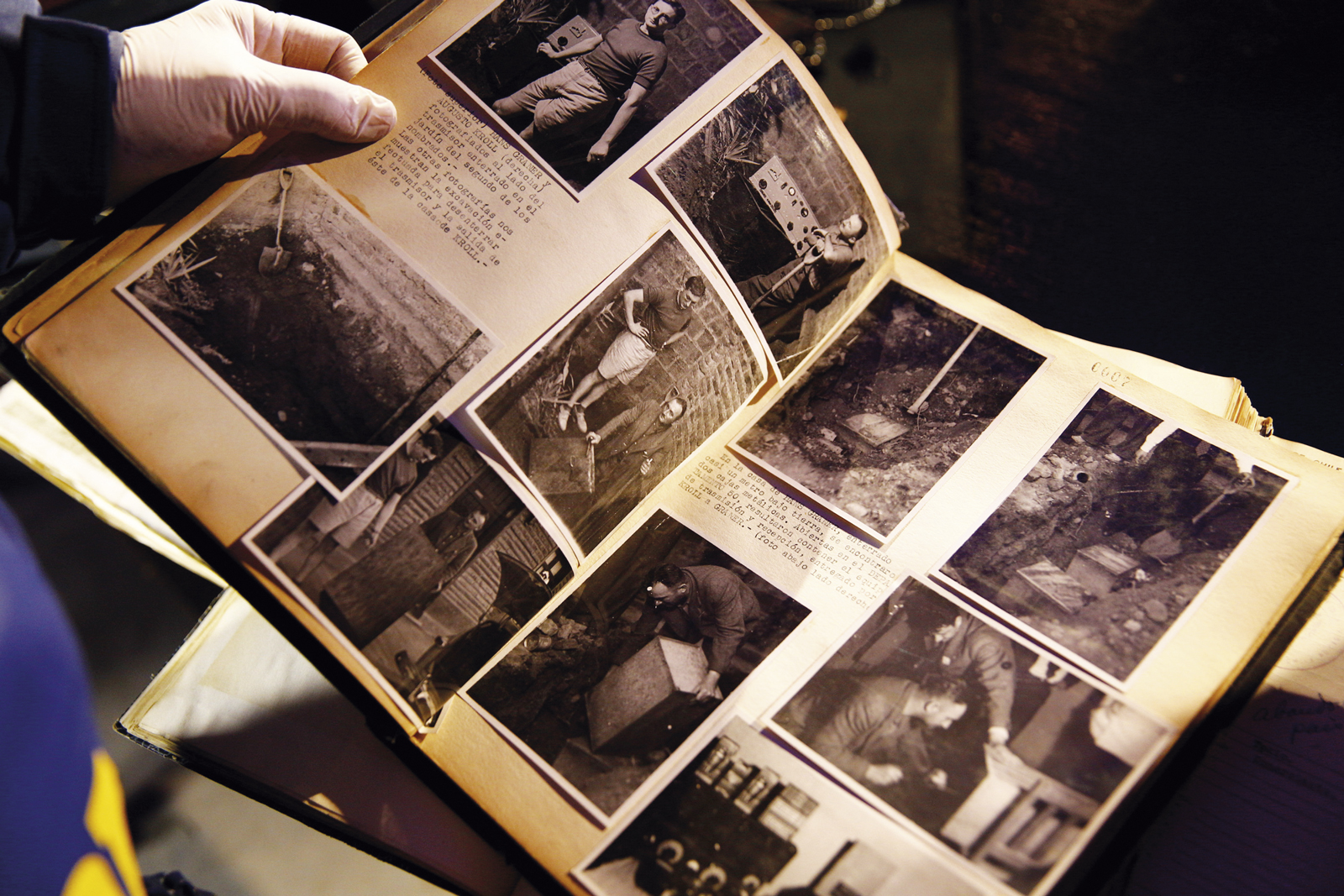
Photographs of men with a swastika on their sleeves, of false passports and of a Gestapo card were, it would be assumed, taken in Germany. In fact, they were taken in Chile.
They are part of a set of documents that were declassified and transferred to the National Archive in 2017. It comprises nine notebooks with typed documents, 13 volumes of reports, accompanied by telegrams, passports and identity cards, and an album with 247 black-and-white photographs. Given their heritage importance, the documents have been restored and digitized and can be viewed on the website of the National Archive .
Department 50
The documents belonged to Department 50, the special intelligence unit of the Chilean Plainclothes Police Service that investigated and sought to dismantle the Nazi networks that operated in Chile between 1937 and 1944. It was so named simply because 50 was the unit's telephone extension number.

The notebooks now held by the National Archive contain details of two operations. The first, known as PYL, involved the dismantling of a group that, from the town of Quilpué in central Chile, was transmitting encrypted messages to Germany with the itineraries of allied merchant ships.
The second, referred to as PQZ, culminated with the arrest of 20 people, the seizure of radios, cash, a codebook and plans to bomb mines in northern Chile.
Chile remained neutral in World War II and only broke off relations with the Axis (Germany, Italy, and Japan) when it was discovered that the German Embassy in Chile had been supporting these Nazi groups. All the Embassy officials with diplomatic status who had been involved were declared persona non grata and expelled from the country.
In 1945, Department 50's last investigation uncovered Nazis groups that were operating in other cities in the region such as Buenos Aires, Montevideo, Sao Paulo and Lima.

